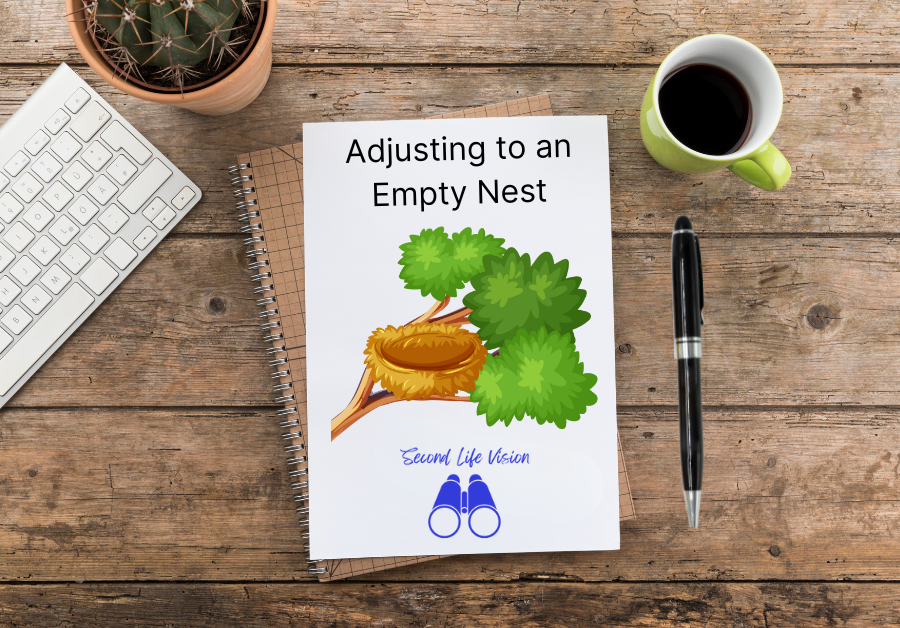This week, our younger daughter moved to Prince Edward Island. After two years of trial runs, we are now officially adjusting to an empty nest.
Adjusting to an empty nest is a life change that many parents struggle with. But like any change, it can present an opportunity. Read on for seven ways to fill the void left behind when kids venture out into the world.
Acknowledging the emotions
As parents, seeing our kids leave home is a bittersweet moment. We feel satisfied that we’ve done our job and raised our children to be independent adults. At the same time, we feel sad because the house feels just a little bit too quiet.
After 20 to 25 years of parenting, adjusting to an empty nest is a huge change. When you’ve spent a big chunk of your life caring for these beings, seeing them leave is bound to spark some emotions—especially when they’re in faraway places and dropping in for a cup of tea and a chat isn’t a possibility.
Parents react in different ways when their kids leave home. I know parents who couldn’t wait for their kids to be gone so they could get on with their lives. For many, though, this is a time of sadness and even grief as a role that has given them a strong sense of identity is suddenly diminished.
Empty nest syndrome isn’t a clinical term or formal mental health diagnosis. Even so, like other big changes, this time is associated with strong emotions. Many parents feel a lack of purpose when their kids leave. Others have difficulty focusing. Some experience relationship issues when they find themselves alone with their spouse. In extreme cases, coping with an empty nest can lead to anxiety or depression. It can also worsen existing mental health conditions.
Strategies for adjusting to an empty nest
Like any significant life change, it’s important to acknowledge what’s happening and develop strategies to cope with the new reality. I always find keeping busy is the best way to stop myself from overthinking or worrying about things I can’t control. With that in mind, here are seven practical ways to cope with empty nest syndrome.

Start a new project
If there’s a project you’ve been putting off, or one that you’re just not making as much progress on as you’d like, this is the time to forge ahead with it. For me, I’ll seize this opportunity to launch my new workshop, and get to work on that book project that’s been sitting on the back burner for a while.
Revitalize your social connections
If you’re in a relationship, you now have the chance to reconnect with your partner and spend more time together. Plan a vacation, take that cooking class you’ve been putting off, sign up for pickleball, or just spend time chatting about the future. The possibilities are endless.
This is also an excellent time to expand your social circle or rekindle relationships with old friends.
Learn something new
Plunging yourself into learning something new is one of the best ways to take your mind off how much you’re missing your kids. Look into courses at your local community centre, public library, college or university—or browse the free offerings on platforms like Coursera or EdX.
Dive into a hobby
As parents, we spend a lot of time shuttling our kids around to hockey practice, music lessons, and other activities. An empty nest is your chance to rechannel that focus into a new hobby of your own, or to pick up an old hobby you abandoned in the busyness of family life. You might just discover a new passion or money-making side hustle.
Boost your fitness routine
Physical activity is one of the best ways to boost mood, and research shows exercise can lessen symptoms of anxiety or depression. If your fitness routine needs a little kickstart, look for a new class, find some YouTube workouts, or just get outside for a long walk every day.
Declutter and reimagine your space
Kids and clutter go hand in hand. When your kids leave, they take a lot of their stuff with them. If you’ve been wanting to declutter, this extra space might be just the motivation you need. Visit my personal blog for decluttering tips and checklists to help you get started.
And while you want to make sure the kids feel they have space when they come back to visit, consider repurposing their rooms to fit your new lifestyle—a reading or writing nook, craft area, or yoga space might be just the thing.
Plan a visit
Finally, if your kids are like mine and have ventured off to faraway places, pick a date and plan a visit. Before Colleen left for PEI, I took advantage of a seat sale and booked a trip to BC to visit her sister in October. Definitely something to look forward to.
After the initial wave of emotions subsides, an empty nest is an opportunity to look ahead and create the life you want to live. With the financial obligation of raising children in the rearview mirror, it’s also a time when many parents consider making the leap into retirement.
If you’re thinking about retirement, contact me to learn how I can help you create a plan to fill your empty nest with meaning and purpose.
